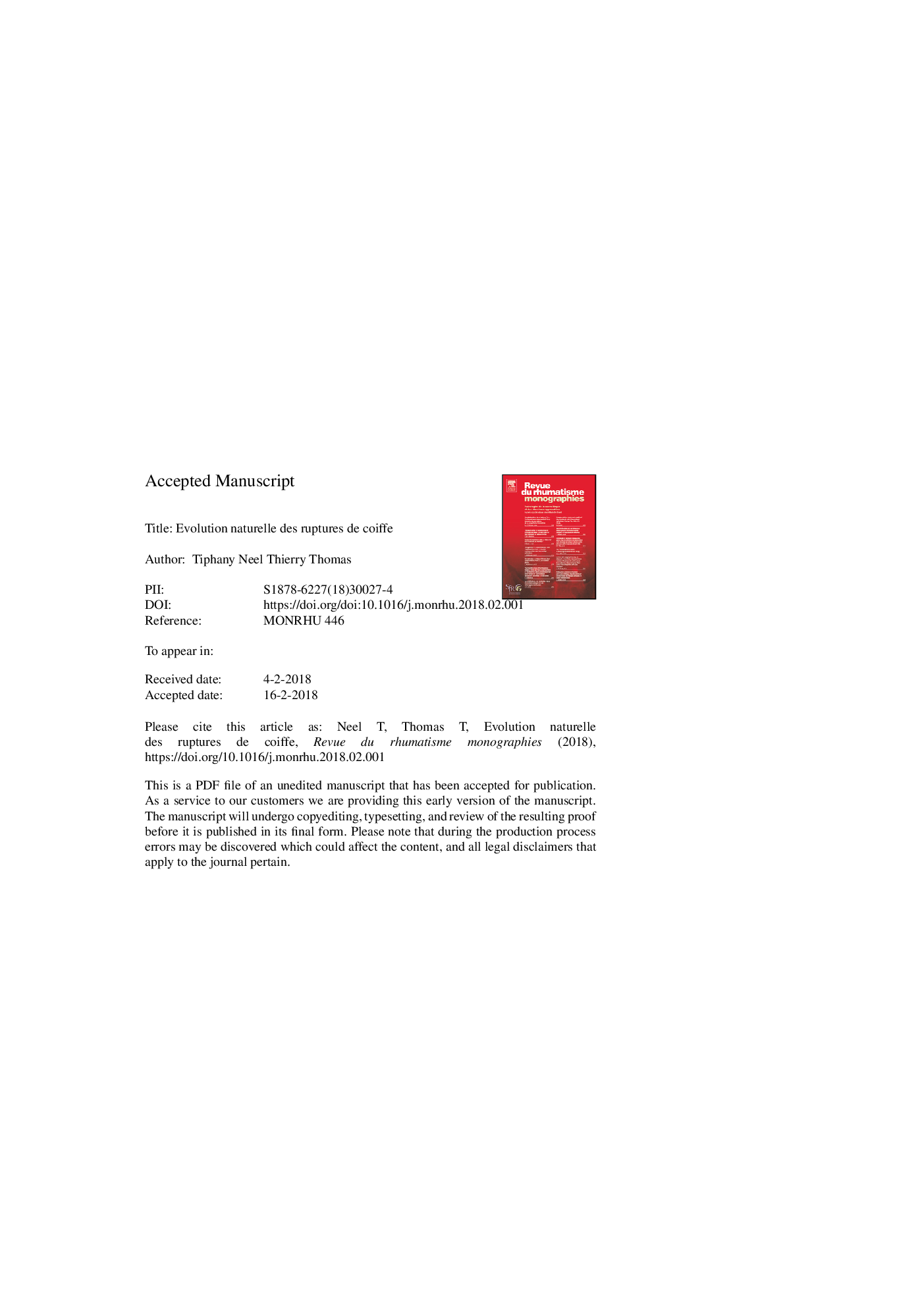| Article ID | Journal | Published Year | Pages | File Type |
|---|---|---|---|---|
| 8743522 | Revue du Rhumatisme Monographies | 2018 | 13 Pages |
Abstract
In patients over 50 years old, the clinical expression of a degenerative rotator cuff tear has lot of variability from no symptoms to heavy pain associated with disability. For most patients, the evolution on the short term is good under medical treatment but this has to be balanced with the potential risk of lesions enlargement with time. Therefore, therapeutic management of rotator cuff tear in these circumstances is not well determined as its evolution remains uncertain. Several parameters could influence the latter including size of tear, fatty muscular degeneration and muscular atrophy. They are predictive factors of poor outcome after surgery as well. Because of the remaining difficulties to predict structural progression of rotator cuff tears as well as their clinical expression over time, there is still a strong need for further studies to improve our knowledge of these events with the aim of better identifying a potential window of opportunity for surgical treatment.
Related Topics
Health Sciences
Medicine and Dentistry
Immunology, Allergology and Rheumatology
Authors
Tiphany Neel, Thierry Thomas,
